Anti-terror fight will take time, expert believes
Updated: 2014-08-04 07:30
By Cui Jia in Urumqi and Cao Yin in Beijing (China Daily)
|
||||||||
Anti-terrorism efforts in the Xinjiang Uygur autonomous region will take a long time to show results, an expert said on Sunday, nearly a week after the region experienced its most deadly terrorist attack in recent years.
Thirty-seven civilians were killed and 13 injured last Monday in Shache county, southern Xinjiang's Kashgar prefecture. Police gunned down 59 terrorists and arrested 215 others, the regional government said in a statement released on Sunday.
The case was first reported on Tuesday, but no figures were given except the fact that dozens of people had died. Among the dead were 35 Han Chinese and two Uygurs, the statement said. Also, of the 31 vehicles smashed in the violent attack, six were burned.
Police confiscated long knives and axes, as well as terrorists' banners that hailed a "holy war."
A gang armed with knives and axes attacked a police station and government offices in Elixku township early Monday morning, and some moved on to nearby Huangdi township, attacking civilians and smashing vehicles as they went.
The gangsters also set up roadblocks on Bachu-Shache Road and stopped passing vehicles before slashing passengers indiscriminately and forcing civilians to join them in the terror attack, according to police.
Investigations showed that it was an attack jointly "organized and premeditated" by terrorists in and outside China.
The mastermind behind the attack was identified as Nuramat Sawut from Elixku township, who had close connections with the East Turkestan Islamic Movement terrorist organization.
Sawut is known to have promoted separatism and religious extremism with audio and video materials beginning last year, authorities said. Through this process, he developed a terrorist group and became its leader, they said.
Since the beginning of the Islamic holy month of Ramadan, the group had multiple gatherings in remote places during which they made plans and prepared tools.
Ma Pinyan, a researcher at the Xinjiang Academy of Social Sciences, said people shouldn't expect the intensified campaign targeting terrorism to show effects immediately.
"Terror attacks are a complex problem. They not only cover extreme religious thought, but also some social conflicts that accumulated day by day," Ma said. "A resident who has a dispute with government departments may be more easily influenced by terrorists."
Most terrorists are spreading extremist thoughts via instant messaging tools, including WeChat, thus causing more people to be influenced and bringing more serious results, he said.
How to ensure positive thoughts can be broadcast among these people is key to alleviating terror attacks, he added.
Zhang Chunxian, Party chief of the region, said on Saturday that the terrorists will be punished in accordance with law, and that anyone committing crimes must be brought to justice no matter how small those crimes are.
He also vowed to find out the organizers or the sponsors of the terrorist cells and track down anyone who is involved in the cells.
Contact the writer at cuijia@chinadaily.com.cn
Xinhua contributed to this story.
(China Daily 08/04/2014 page1)
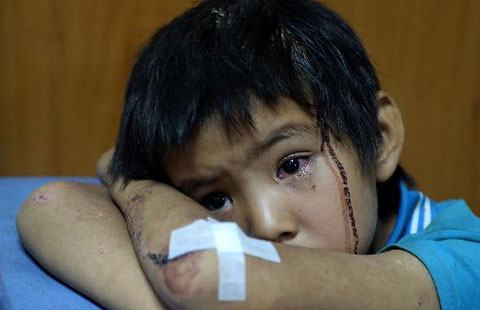
 M6.5 quake hits SW China
M6.5 quake hits SW China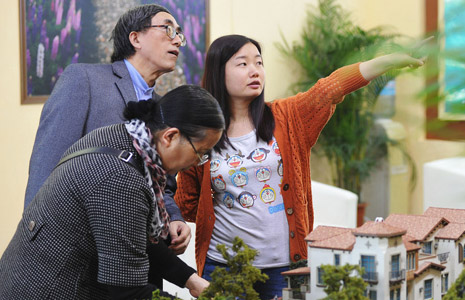
 10 Chinese cities that lifted property curbs in July
10 Chinese cities that lifted property curbs in July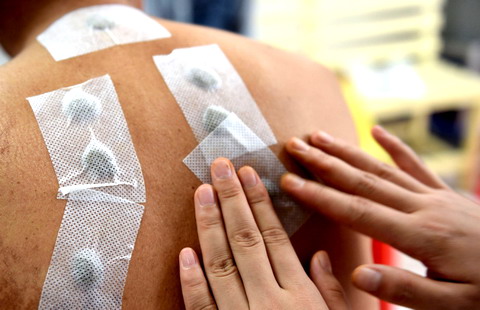
 Culture Insider: Customs of Sanfu - the dog days of summer
Culture Insider: Customs of Sanfu - the dog days of summer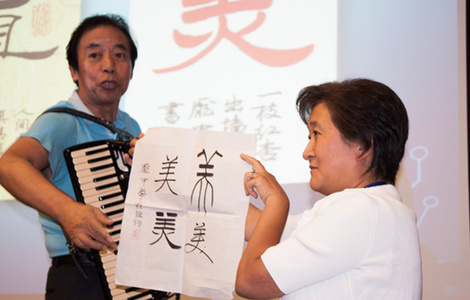
 Calligrapher brings distinctive script to US
Calligrapher brings distinctive script to US
 Chinese Consulate uses baseball as bridge for US ties
Chinese Consulate uses baseball as bridge for US ties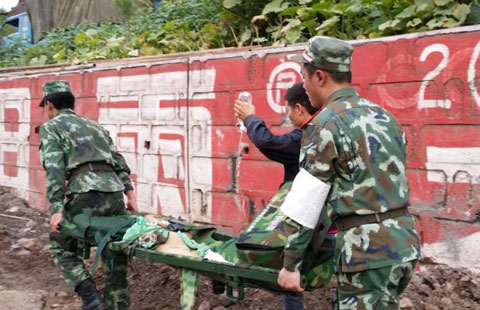
 M6.5 quake hits SW China
M6.5 quake hits SW China
 Shanghai Tower gets finishing touch
Shanghai Tower gets finishing touch
 'Diaper Derby' competition in New York
'Diaper Derby' competition in New York
Most Viewed
Editor's Picks

|

|

|

|

|

|
Today's Top News
US ready to help China in quake relief
Opinion: US competes for better ties with Africa
Anti-terror fight will take time, expert believes
Half a million under water-related state-of-emergency in Ohio
Xinjiang offers cash rewards for those hunting terrorists
373 dead as strong quake jolts SW China
Xi:save people's lives first after quake
69 dead, 150 injured in E China factory blast
US Weekly

|

|






